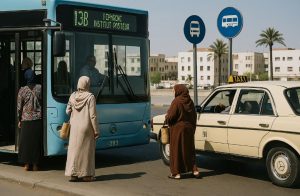Driving in Morocco can be a unique experience, offering the freedom to explore at your own pace. But is it safe? Let’s break it down.
What to Expect on the Roads
In big cities like Marrakech and Casablanca, traffic can be hectic. Drivers are often in a rush, and the roads are shared with scooters, pedestrians, and even animals. It can feel a bit chaotic, but if you stay calm and drive carefully, you’ll be fine.
Outside the cities, the roads vary. Highways are generally good, but rural roads can be narrow, winding, and sometimes bumpy. You might encounter a donkey cart or a herd of sheep along the way, so be prepared for surprises.
Local Driving Habits
Moroccan drivers can be unpredictable. They often change lanes without signaling, and roundabouts are a free-for-all. It’s different from what you might be used to, so defensive driving is key. Also, keep an eye out for traffic police, especially on highways—they’re strict about speed limits.
Tips for Safe Driving
- Stay Alert: Always be ready for anything—other drivers, pedestrians, or animals can appear out of nowhere.
- Avoid Night Driving: Roads are poorly lit, and it’s harder to see potential hazards. Stick to driving during the day.
- Use GPS: A good navigation app is your best friend, especially when roads aren’t well-marked.
- Follow the Rules: Stick to speed limits and avoid drinking alcohol if you’re driving—Moroccan laws are strict.
Renting a Car
Renting a car in Morocco is easy, with plenty of options. Just make sure you choose a reliable company and check the car for any damage before you hit the road. It’s also wise to get full insurance coverage, especially if you plan to drive in more remote areas.
Is It Safe?
Yes, it’s generally safe to drive in Morocco, but it can be challenging. If you’re up for an adventure and comfortable with the idea of navigating some chaotic traffic and unpredictable roads, driving can be a great way to see the country.
However, if you’re not feeling confident, there are other ways to travel, like trains, buses, or guided tours, which might be a better fit.



